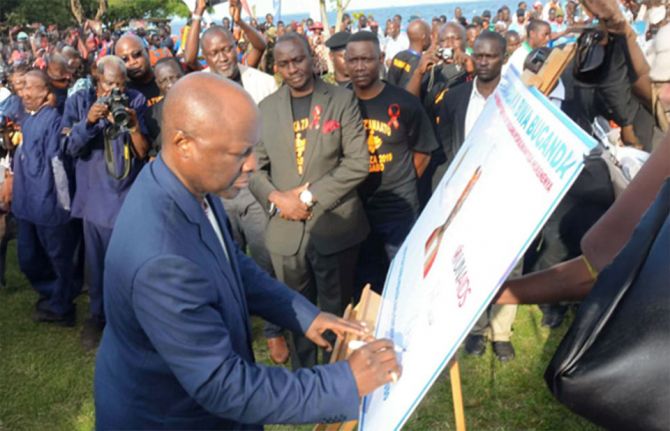
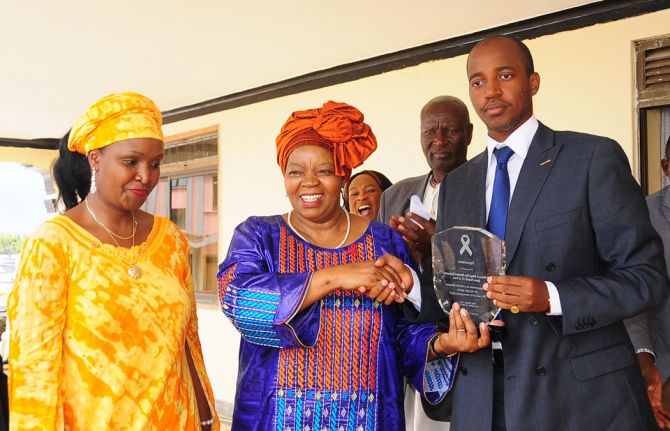
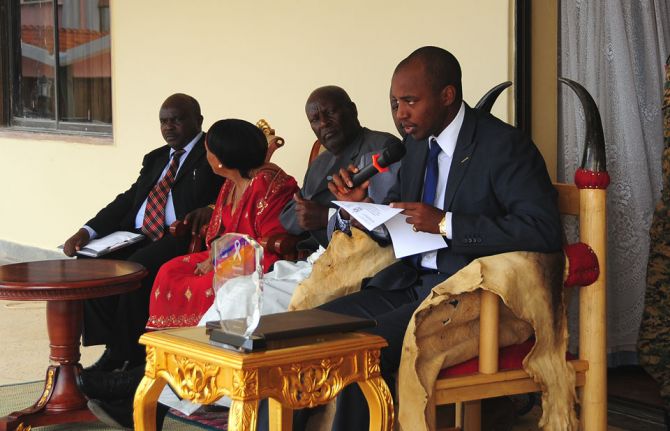
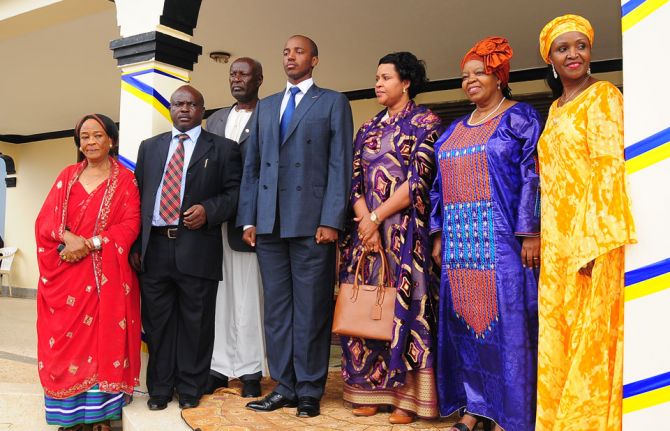
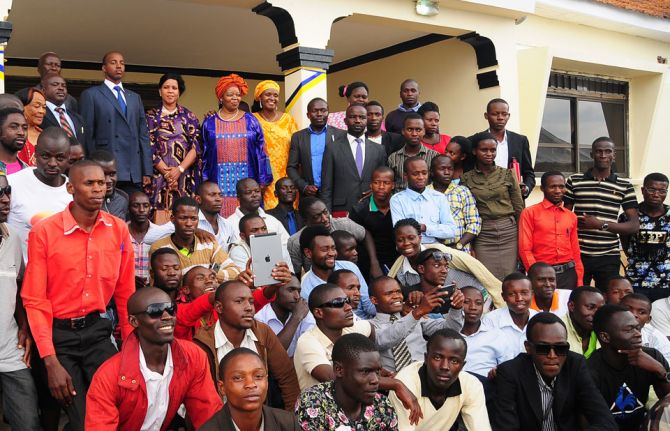
Update
King Oyo of Uganda committed to ending the AIDS epidemic among young people by 2030
20 September 2016
20 September 2016 20 September 2016King Oyo Nyimba Kabamba Iguru Rukiidi IV of the Tooro Kingdom in Uganda expressed his commitment to ending the AIDS epidemic as a public health threat by 2030 as he accepted the role of Cultural Champion for HIV and AIDS among Young People in Eastern and Southern Africa on 8 September. At 24, King Oyo is the youngest reigning monarch in the world and has significant influence and respect among young people in the eastern and southern Africa region.
Speaking in Fort Portal, Uganda, in the presence of the UNAIDS Regional Director for Eastern and Southern Africa, Sheila Tlou, King Oyo highlighted the need to eliminate new HIV infections in the kingdom. He emphasized that this should not be the role of women alone and called on men to support their partners, especially with regard to the prevention of mother-to-child transmission of HIV.
Uganda has made much progress in its HIV response. Prevention of mother-to-child transmission of HIV coverage is over 95%, which has led to a reduction in the number of babies born with HIV from approximately 28 000 in 2011 to 3400 in 2015. New HIV infections have also dropped by more than half, from 162 294 in 2011 to 83 000 in 2015. While there have been many successes, new HIV infections remain high. Uganda registers an estimated 33 new HIV infections per day among young people between the ages of 15 and 24 years and comprehensive knowledge of HIV, as well as uptake of HIV prevention and treatment services among young people, remains low. Thus, King Oyo’s new role is critical to addressing HIV prevention among young people.
Quotes
“No child should be born with HIV in Tooro and people that are tested and found to be HIV-positive should be placed on treatment.”
“If we are to end the AIDS epidemic as a public health threat by 2030, we have to engage cultural leaders, given the important role they play in society as custodians of culture. They are integral players in the AIDS response.”

